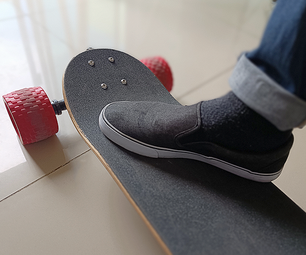Introduction: How to Help Your Overweight Cat to Lose Weight
The number of overweight and obese cats has exceeded to that of normal weighted cats in recent years. According to veterinarians, extra pounds on your cat lead to various disorders such as diabetes, arthritis and hepatic lipidosis. Most obvious reason which we can figure out for obesity in cats is that cats spend much time indoors and get less time for exercise. A very specific weight loss plan is required to help your cat in losing weight. Several positive changes in lifestyle and diet will be effective in helping cat to return to its pre-obese shape. Here’s how you can help your cat in cutting down extra pounds and stay fit:
1. It starts with a visit to vet: Few calories in and more calories out is the theoretically simple formula for weight loss. However, it is not that simple when it comes to implementation. Before you launch a weight loss plan for your cat, it is important to take your kitty to the vet. The doctor can suggest a better diet plan after examining the blood and urine levels. By testing the blood and urine, you will be able to know if some metabolic abnormality is responsible for obesity. Also, get the correct measurements of your cat, calculate ideal weight according to measurements to select an appropriate weight loss program.
2.Select a weight loss program: Next task is to select a proper weight loss program. First comes diet, you have to feed your cat the food that is 20 % lower in calories than the foot you used to feed him earlier. Monitor the weight of your cat weekly after following the new diet. If the cat is losing weight accordingly, stick to the diet; otherwise reduce or increase the diet accordingly. Follow this until your cat has reached its target weight.
3.Cut down on dry food: Most of dry foods are rich in calories with some foods having up to 400 calories per cup. Moreover, dry foods have less carbs and high protein which is a wrong combination for the healthy growth of cats. Cats consuming more carbs and calories are more likely to gain weight easily. If dry food is the only option you can offer to your cat, feed less and be sure to count calories.
4.Reduce carbs intake and increase protein intake: We can’t blame dry foods only; wet foods as well contain a heavy volume of carbohydrates which encourage obesity. It is advised that being a responsible pet owner, you do good research on nutrients you are offering to your pet through the food. Give your cat the natural food diet with higher levels of protein. Extra carbs may be harmful as felines don’t produce enough enzymes that help in quick digestion of carbs. Protein contributes to healthy weight while carbs make the cat fat.
5.Don’t free feed: Leaving cat with food which they can eat anytime is potentially hazardous. Filling up their bowl every time when it is empty makes it difficult to track the calories intake by the cat. Offering your cat the limited amount of food can help you know better how much your pet has consumed as how much you need to feed more. Free feeding always leads to obesity.
6. Say “No” to prepackaged treats: Prepackaged foods are an unhealthy option as they are stuffed with unnecessary carbs and fat. Better feed your cat with cooked chicken or fish which are great sources of proteins. Also, don’t feed your cat only to stop her meowing. It encourages cat’s habit of overeating.
7. Daily exercise is a must: Exercise is the second most important element of healthy lifestyle, first being the diet. Make sure that your cat is engaged in some sort of physical activity on a daily basis. It will help the feline to burn extra calories and stay in a good shape. Stair climbing and playing with interactive toys is a great way of doing physical activity. Walking and leash training will also be helpful for your cat. You should keep a watch on your cat when he is exercising, if the cat is facing breathing problems, give it a break.
8.Give an L-Caratine Boost: L-Caratine helps the liver in transforming fat reserves into glucose that ultimately helps cat in losing weight. Meats are a good source of L-Caratine and there are few supplements available with high amount of this amino acid. But supplementation should be done only after the approval of your vet.
Summation:
Depending too heavily on packaged food labels may sometimes misguide you. While they provide honest information but it may not be just right for your cat. You need to select the food according to measurements and metabolism of your kitty. A good diet plus an increased level of physical activities is the key for starting the weight loss journey of your cat.











